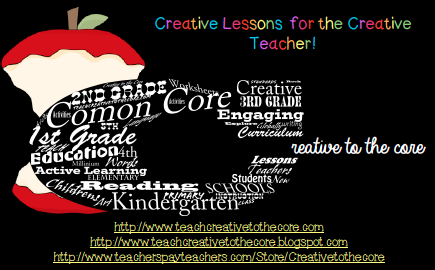
Relax everyone, transitioning to adulthood is an extremely overwhelming topic for educators and families alike, let's remember to take it one step at a time! All I'm talking about now is having students learn to spend a bit of time without as much supervision and having them still engage in productive and meaningful activities.
Over the past few months I have been working on different types of independent work skills and schedules with my students based upon their readiness levels and prerequisite skills. Some students are learning to read and follow written directions to perform independent skills, others are learning how to use a digital timer to perform open-ended activities in a more structured manner (who else has a few kids who could either play with the same toy for an hour OR who get off task during an open-ended activity and resort to inappropriate behaviors for various reasons?), and some students have recently learned to read and follow checklists of up to 10 activities without staff assistance! A few of the students who acquired this more complex skill are now also working on structuring their own time by creating the checklist. Side note: I have some students who actually do not need the checklist and still appropriately allocate their time to different activities during a leisure period, which I have to say is pretty incredible :)
One example of a Task Analysis I have been using to teach this skill of creating and following an independent schedule is:
Program Name: Creates and Follows
Independent Activity Schedule
90% Independence over 2 consecutive days
Set Up:
Present Student with activity choice board. Present him with a
blank checklist of 5-10 tasks (or have him retrieve a lined paper and create
his own).
SD: “Make your checklist” ***Once Student’s
checklist is made he should independently begin following the checklist without any additional
directions.***
Response: Student
will perform the chain below to complete each task on his checklist and cross
them off as they are finished.
Reinforcement: Student
will receive 1 token at the end of the checklist.
Error: Non-verbally redirect Student
back to the current step in the sequence.
|
|||||
Current
Target:
|
5
- 10 Task Checklist
|
5
- 10 Task Checklist
|
5
- 10 Task Checklist
|
5
- 10 Task Checklist
|
5
- 10 Task Checklist
|
Task
Analysis:
|
Date:__________
|
Date:__________
|
Date:__________
|
Date:__________
|
Date:__________
|
1. Selects task and writes on
checklist
|
|||||
2. Adds # of minutes
(if
necessary)
|
|||||
3. Crosses task off activity choice
board
|
|||||
Create
whole checklist before beginning to perform activities (repeat 1-3 for each
task before moving on to 4 for the first task)
|
|||||
4. Points to/identifies first/next
task
|
|||||
5. Retrieves task materials
|
|||||
6. Retrieves timer
(if necessary)
|
|||||
7. Sets and starts timer for
designated duration
(if necessary) |
|||||
8. Performs task for duration (open-ended activity) or until completed (closed-ended activity) Performs task = stays in instructional
area, manipulates materials in appropriate manner as the skill was learned
for duration with no more than 10 consecutive seconds off task behavior.
|
|||||
9. Stops timer when it sounds within
3 seconds
(if appropriate) |
|||||
10. Cleans up and returns materials
|
|||||
11. Checks off task
|
|||||
Daily
Average %:
|
|||||
Note: Actual procedures and steps should be modified and
individualized for each student's skills and needs.
See the sample Activity Choice List included in this blog which students can use to select their independent activities for their checklists. As always, each students' list should be a bit different since the students do not have the same preferences, mastered skills, etc.
Just a reminder, the students who are working on these skills and utilizing these checklists have the prerequisite skills to do so! They are all readers with a number of independent skills, however accommodations can be made for non-readers or students with lower reading abilities. Use a picture choice list instead of a written choice list, use a digital representation of the time instead of a time written out or a picture of the timer itself, set to the correct duration.
Best day through this process? The first day I ran this program with a student who is a real rule follower (a boy after my own heart!) selected 10 tasks in order from the top of the list. On the next opportunity I stopped him from writing and gestured for him to look up and down the list first and that was it! He found out that going in order meant missing out on video games, UNO, and lots of other fun activities. So when you are creating your activity choice lists be sure to mix up the activities so students are really making thoughtful decisions about how they want to spend their time.
Tip # 2: I have the students cross off their selections from the checklist so that they do not pick the same activity twice in the same checklist. However, for some students I have them wait until ALL the activities have been selected (throughout multiple checklist opportunities during the course of the day) so they include more of a variety of tasks.
Regardless of what step they're at or how many tasks they can perform on their own, just remember that each step is one towards independence and given the level of structure and supervision most students in specialized settings are used to, each step is a huge deal so remember to celebrate it :)
~Kristine






